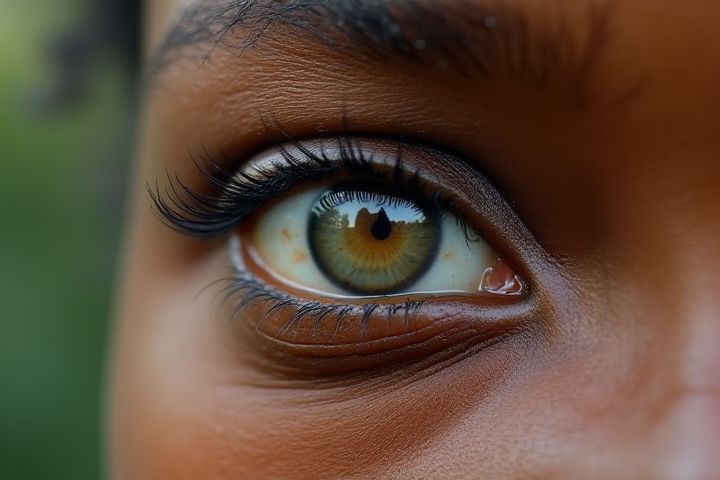
Nigeria, located in West Africa, gained its independence from British colonial rule on October 1, 1960. As of October 2023, this marks 63 years of independence for the nation. The rich history of Nigeria dates back to ancient civilizations, with the Nok culture being one of the earliest known societies around 1000 BC. The country's diverse ethnic groups, including the Hausa, Igbo, and Yoruba, contribute to a vibrant cultural tapestry. Nigeria is now home to over 200 million people, making it the most populous country in Africa.
Founded by British colonization
Nigeria gained formal independence from British colonization on October 1, 1960, marking its establishment as a sovereign nation. However, the area now known as Nigeria was amalgamated by the British in 1914, creating the Nigeria Colony and Protectorate. This means Nigeria was effectively founded as a unified entity under British rule over a century ago. As of 2023, this historical background positions Nigeria as 63 years old since its independence, while under British control, it has a legacy spanning over 100 years.
Merged as a protectorate
Nigeria was officially merged as a protectorate in 1914, using the British colonial administration system. This union combined the Northern and Southern Protectorates and Lagos Colony, marking the beginning of Nigeria as a single political entity. As of October 2023, this makes Nigeria 109 years old as a unified protectorate. The merger laid the groundwork for its eventual independence in 1960 and shaped its diverse cultural and social landscape.
Became a nation
Nigeria became a nation on October 1, 1960, gaining independence from British colonial rule. This marked the beginning of its journey as a sovereign state, allowing it to establish its own government and constitution. As of October 1, 2023, Nigeria celebrated 63 years of independence, highlighting its diverse cultures, languages, and rich history. This milestone emphasizes the significance of national unity and development in the face of various challenges.
Gained independence
Nigeria gained independence from British colonial rule on October 1, 1960. As of October 1, 2023, Nigeria is 63 years old as an independent nation. This milestone marked the beginning of Nigeria's journey towards self-governance and national identity. The country has since developed a rich and diverse cultural landscape, reflecting its various ethnic groups and traditions.
Celebrates Independence Day
Nigeria gained its independence from British colonial rule on October 1, 1960, making the country 63 years old as of 2023. Independence Day is celebrated annually, marking the nation's liberation and the beginning of self-governance. Festivities include parades, cultural displays, and ceremonies held in various cities to honor national heroes and promote unity. This significant day emphasizes Nigeria's rich heritage, diverse cultures, and the ongoing journey towards development and democracy.
Under a federal republic
Nigeria gained its independence from British colonial rule on October 1, 1960, making it over 63 years old as of 2023. Operating as a federal republic since 1963, Nigeria's governance is divided among 36 states and the Federal Capital Territory, Abuja. The country features a diverse cultural heritage, encompassing over 250 ethnic groups and multiple languages, which enrich its democratic framework. Your understanding of Nigeria's complex political structure can enhance your insight into its vibrant socio-economic landscape.
Diverse ethnic groups
Nigeria, located in West Africa, is home to over 250 diverse ethnic groups, making it one of the most culturally rich nations in the world. The three largest groups are the Hausa-Fulani in the North, the Yoruba in the West, and the Igbo in the East, each with distinct languages, customs, and traditions that contribute to Nigeria's vibrant identity. Despite its independence from British colonial rule in 1960, the rich tapestry of Nigeria's ethnic diversity continues to shape its social dynamics and political landscape. Understanding these ethnic groups is essential for appreciating the complexities of Nigeria's history and its ongoing evolution in the global context.
Rich cultural heritage
Nigeria, established as a nation in 1960, has a rich cultural heritage that reflects its diverse ethnic groups, including over 250 distinct languages and numerous traditional practices. The country's cultural landscape features vibrant art forms, such as intricate beadwork, striking textiles, and renowned sculptures, particularly from the Benin Kingdom and Nok culture. Festivals like the Osun-Osogbo and Durbar showcase colorful traditions, music, and dance, each celebrating communal values and historical events. Engaging with Nigeria's heritage offers a deeper understanding of its societal values, beliefs, and artistic expressions that continue to thrive today.
Economic powerhouse in Africa
Nigeria, established as a country in 1960, is now over 63 years old and has emerged as a significant economic powerhouse in Africa. With a GDP exceeding $470 billion, it ranks as the largest economy on the continent, driven by diverse sectors such as oil and gas, agriculture, and telecommunications. Leveraging its vast natural resources and youthful population, Nigeria has favorable investment opportunities, particularly in technology and renewable energy. Your engagement in Nigeria's evolving market can contribute to robust growth and development in the region.
Influential in regional politics
Nigeria, established as an independent nation in 1960, is now over 63 years old and plays a pivotal role in West African regional politics. As the continent's most populous country, Nigeria wields significant influence through its economic power and robust military presence. With its diverse ethnic groups and political dynamics, Nigeria often leads initiatives in organizations like the Economic Community of West African States (ECOWAS) to foster stability and security. Your understanding of Nigeria's political landscape is essential for grasping the complexities of power dynamics in the region.
